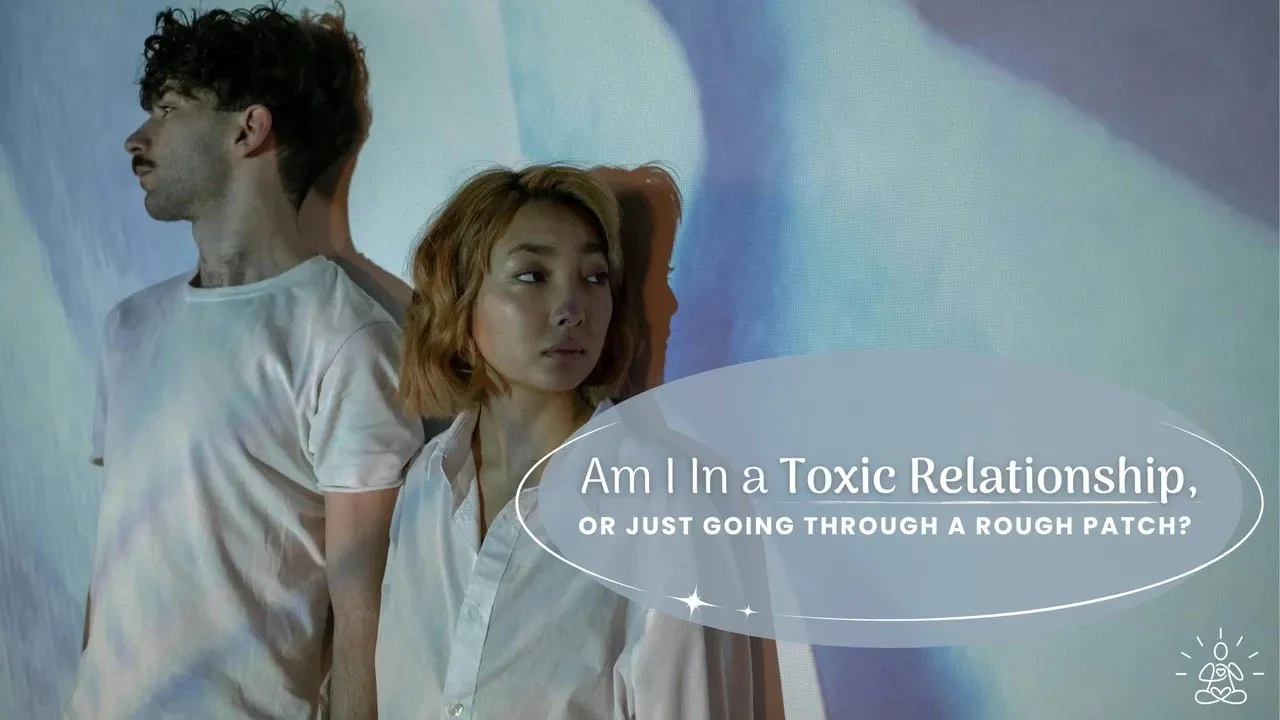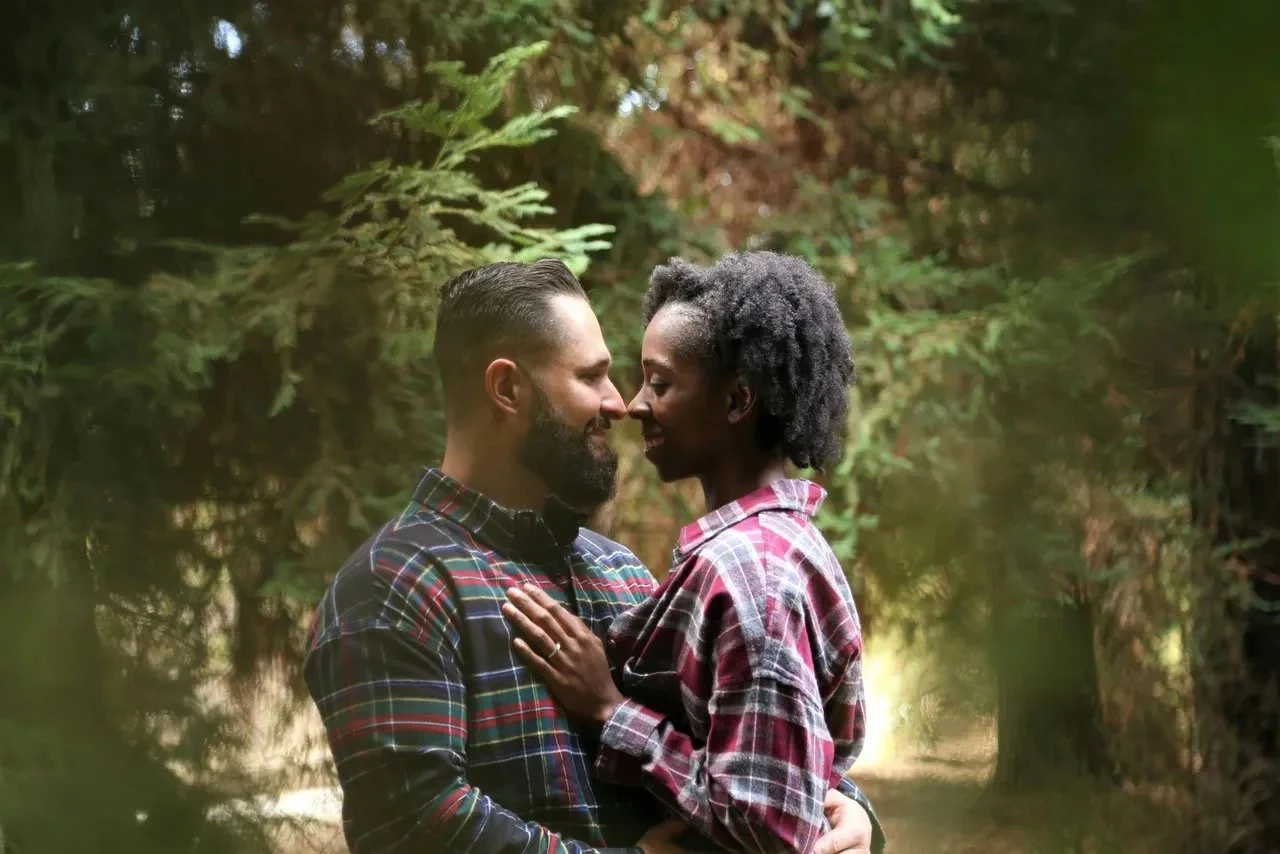Am I in a Toxic Relationship or Just Going Through a Rough Patch?
With February being the month of love and friendship, now is the perfect time to reflect on our relationships and explore what makes them healthy or unhealthy. Whether you're in a relationship, seeking one, or reassessing past experiences, understanding the dynamics of a strong partnership can be invaluable.
When it comes to relationships, we often hear about red flags—those warning signs that tell us something is off. While it's important to recognize unhealthy patterns, it’s equally crucial to identify green flags—positive indicators of a healthy, loving relationship. For many people, especially those who lacked positive role models growing up, it’s not always clear what a healthy relationship looks like. If you don’t know what to look for, it becomes even harder to find. Learning to recognize both red and green flags can help you navigate love with clarity and confidence.
Red Flags: Warning Signs You Shouldn’t Ignore
Refusal to Communicate – It’s normal to feel uncomfortable with conflict, but it becomes a problem when someone flat-out refuses to talk through issues in the relationship. If your partner constantly shuts down, ignores concerns, or avoids revisiting important conversations, it creates emotional distance and makes it impossible to work through problems. Instead of trying to be open, they might bottle up their feelings, vent to others instead of you, or expect you to “just drop it” without closure. They might even brush you off by accusing you of being too sensitive, dramatic, or difficult.
Disregard for Boundaries – If your partner pressures you, dismisses your feelings, or makes you feel guilty for asserting your needs, it’s a major red flag. A healthy relationship requires respect for boundaries—whether they’re physical, emotional, or even digital. Disregarding boundaries can look like ignoring your requests for space or alone time, even after you’ve clearly communicated your needs. It can also mean pushing emotional limits, such as bringing up painful topics you’ve asked to avoid or making hurtful jokes at your expense under the guise of “teasing.”
Controlling Behavior – A partner who dictates who you can see, what you can do, or makes major decisions without your input is showing an unhealthy level of control. In extreme cases, this control can manifest as isolating you from friends and family, controlling access to money, or discouraging you from working to make you more dependent on them. They may frame it as "taking care of you," but the underlying goal is control, not support.
Extreme Jealousy and Hurtful Accusations – Some jealousy is natural, but when a partner constantly accuses you of being unfaithful or assumes bad intentions without evidence, it becomes toxic. They may throw out blanket accusations or demoralizing insults like, “You’re just like all women—only after money” or call you degrading names like “a slut.” These accusations aren’t just unfair—they're meant to make you feel guilty or ashamed for things you haven’t done. Instead of expressing their own insecurities in a healthy way, they shift the blame onto you, creating an environment where you’re constantly defending yourself instead of feeling safe and valued.
Lack of Support – A partner who constantly downplays your achievements, belittles your dreams, or discourages your growth is not supporting you—they’re holding you back. They may dismiss your successes as unimportant, act indifferent, or even make sarcastic or condescending remarks. They might criticize your ambitions, tell you that your goals are unrealistic, or make you feel selfish for wanting more for yourself. Over time, this can chip away at your confidence and make you question your own potential. A relationship should be a place where you feel encouraged, not where you’re made to feel small.
Frequent Lying or Secrecy – Trust is built on honesty, and when a partner hides things, twists the truth, or gaslights you into questioning your own reality, trust will erode over time. They might withhold important details, give vague or inconsistent explanations, or change their story when confronted. In some cases, they may deflect by making you feel guilty for even asking questions, turning the focus onto you instead of their dishonesty. Over time, this pattern creates uncertainty, making you second-guess your instincts and feel like you’re always searching for the truth in your own relationship.
Emotional or Physical Abuse – Any form of abuse—manipulation, belittling, threats, or physical harm—is a serious red flag and an absolute dealbreaker. Abuse isn’t just about physical violence; it can also include yelling, intimidating body language, punching walls, throwing objects, or using fear to gain control. These behaviors create an unsafe environment and can be a precursor to further escalation. Abuse is never acceptable, and it often worsens over time. If you recognize these patterns, seek support and prioritize your safety.
Green Flags: Signs of a Healthy, Supportive Relationship
Open and Honest Communication – You feel safe expressing your thoughts and emotions without fear of judgment or retaliation. Your partner listens actively, respects your feelings, and engages in meaningful conversations rather than shutting down or avoiding difficult topics. They are transparent about their feelings, intentions, and concerns, creating a relationship built on trust and openness.
Mutual Respect – Your partner values your opinions, considers your perspective when making decisions, and treats you as an equal. They acknowledge your individuality and don’t belittle or dismiss your thoughts. Respect also means recognizing boundaries, honoring your autonomy, and maintaining a foundation of kindness and consideration in all interactions.
Emotional Security – You don’t have to walk on eggshells, fear sudden mood swings, or constantly guess where you stand. Your partner provides a steady, supportive presence, making the relationship feel safe rather than unpredictable or chaotic. They don’t weaponize emotions or use affection as a reward or punishment. Instead, they create an environment where you can be vulnerable without fear of rejection or retaliation.
Healthy Conflict Resolution – Disagreements are inevitable, but a healthy partner approaches them with a mindset of finding solutions rather than assigning blame or asserting dominance. The take responsibility for their words and actions, listen to your concerns, and work collaboratively toward resolution. They also recognize when they are wrong, offer sincere apologies, and commit to personal growth—not expecting perfection, but demonstrating a willingness to improve.
Encouragement and Support – Your partner genuinely celebrates your achievements and encourages your personal growth. Rather than feeling threatened by your success, they uplift you, whether it’s in your career, personal aspirations, or well-being. They support your ambitions without guilt-tripping or making you feel like you need to shrink yourself to accommodate their insecurities. They stand by you in difficult moments and take joy in your happiness.
Independence and Personal Space – You both maintain your own identities, interests, and friendships while still nurturing your relationship. A supportive partner understands that personal space is essential. They trust you and respect your need for time alone, hobbies, or separate social circles, rather than making you feel guilty for having a life outside of the relationship.
Trust, Consistency, and Reliability – A healthy relationship is built on trust, and trust is reinforced through consistent behavior. Your partner shows up in a steady, dependable way, following through on their commitments and ensuring their words align with their actions. You never have to second-guess their intentions or wonder where you stand. There’s no need for constant doubt because you know they have your back.
Final Thoughts: Balance Matters
No relationship is perfect, and everyone has room for growth. A few red flags don’t necessarily mean a relationship is doomed, but they should prompt reflection and honest conversations. Similarly, green flags don’t mean a relationship will always be effortless. What truly matters is whether both partners are willing to acknowledge challenges, address issues, and actively work on building a healthy, supportive dynamic. Relationships require effort, and the key is recognizing when that effort is mutual.
If you’re seeing more red than green, it may be time to reassess your relationship’s direction and consider whether real change is possible. But if you notice green flags—especially alongside a genuine willingness to improve—then you may have a foundation worth nurturing. Healthy relationships aren’t about perfection; they’re about growth, respect, and consistency.
Trust your instincts, pay attention to the signs, and remember—you deserve a relationship that makes you feel safe, loved, and valued. If you’re struggling to navigate these complexities, I’m here to help. Graceful Mind Therapy provides a safe and compassionate space to explore your concerns and work toward clarity and healing. Reach out today to take the next step toward a healthier, more fulfilling relationship.
by Maria Perdomo-Torres, LCSW-S, MHA, CFSW




